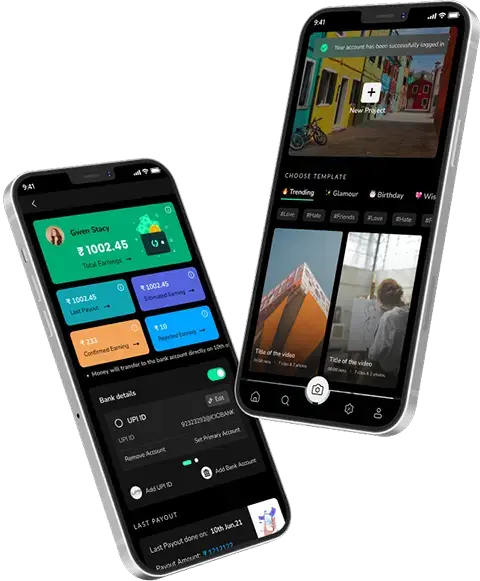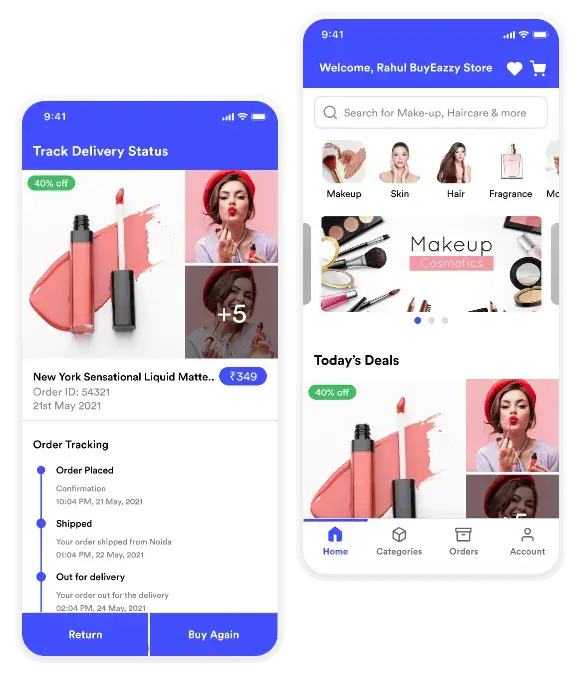5 Sep 2017
Updated on December 28th, 2022
How To Combat Some Of The Worst Mobile App Development Myths
Ankit Singh

Every culture, every religion is wrapped beautifully with some sort of myths and superstitions, but since the invasion of the technology, the myths have taken a back seat, and people prefer to have a more cleaner outlook of anything coming from their vicinity. But what happens when you find myths associated with technology only? It is little confusing and disturbing to know that technology too gets mishandled by the myths. Well, today am going to enlighten my readers further with the myths associated with the mobile app development and how to bust them.
Mobile apps are an integral part of our lives, and living without them in today’s world is not an easier task, since our day starts with the mobile apps and ends with the mobile apps, so neglecting their presence is nothing, but a futile visualization, which gets bombarded with the time, so as a rule, we all want a mobile app and its necessity could not be escaped. But as I stated above there are certain myths which are associated with the mobile app development as well and needs to be eliminated before it takes the shape of any disastrous consequences, so let’s read ahead and find more about the mobile app development myths and the ways to bust them fully…
HYBRID AND NATIVE, NOT MUCH DIFFERENCE IS THERE
Many people have a strong belief that hybrid and native mobile apps hardly have any difference, and they all are same, and app developers only befool others, with this propaganda, but hold on!!!, there lies a huge foundation of differences between these two platforms, and you cannot simply pick any mobile app platform, based on your instincts, rather you need to indulge with your mobile app requirements, and what your business demands. You need to know that what either of these platforms stands for? For instance, hybrid apps are cheaper, being compared to native, but have a number of limitations too. Native apps are faster and provide a seamless experience to the users, but are expensive. So it is your decision to make a choice and pick the app platform according to your requirement’s taste.
I DON’T NEED WIREFRAME
What is the use of a wireframe, I don’t want to get my app development’s precious time wasted in that, this is the most common stuff I get to hear from those who are looking for a mobile app for their business requirements, and I find it hard to trust. If you too have the same myths frozen in your brain, then I insist you read further… a wireframe of the application gives you an insight into what your application would look like once it is completed, so you can make the required changes at the very initial stage, rather than prolonging them till development cycle gets over. As the name suggests it is a frame of your mobile app and how it is going to look alike on the completion, so it is an important aspect, and certainly not the waste of time and efforts.
MOBILE APP DEVELOPMENT TIME IS SAME FOR ALL
Uff!!! This is the most unbearable fact that you come across is that every mobile app development time is similar, so the time consumed in my friend’s mobile app development, should be the same, but actually it is not possible since every mobile app has its own development requirement and its development time varies, depending on its number of functionalities and features, so the development time is decided upon the nature of your mobile app and the features it carries, so no two mobile apps can have the same development time, unless they are the replica of each other.
WHY MY MOBILE APP IS EXPENSIVE THAN OTHERS
Yes, you have all the rights in the world to ask this question, which is valid and quite significant too. But there are reasons which decide the app development cost, and the reasons state; the number of features, OS choice and the functionalities which decide the app development cost majorly. So don’t get confused with the number of the amount charged from other, because unless your mobile app is a copy of the other mobile inch to an inch, then you can expect the cost to be similar, but on the other hand, the app development cost would vary based on the above-mentioned aspects.
NOTHING HAS TO BE DONE AFTER THE APP DEVELOPMENT PROCESS
Many people who want to have a mobile app for their business domains they feel that mobile app development is sufficient enough for the business revenue boost, and nothing else has to be done once the development process gets over, I understand that mobile app development in Dubai is a serious marketing strategy, but this is just a one step of marketing strategy and there is more which lies there once the app is developed, which includes the marketing of the mobile app, so it can gain the deserving recognition in the market, and as a consequence the website traffic converts into business. So in order to make your mobile app successful, you must follow the interesting world of marketing.
Mobile app myths are more in numbers and needs to be addressed accurately to remove the chances of error, I have tried to address some of the most significant myths here, and I really hope to look up to these ways, it would really help you to have a clear picture of mobile app development.
So till the next time, I come up with more interesting mobile app development related information, keep reading and keep yourself tech-updated…
Get in touch.
Write Us
sales@techugo.comOr fill this form















